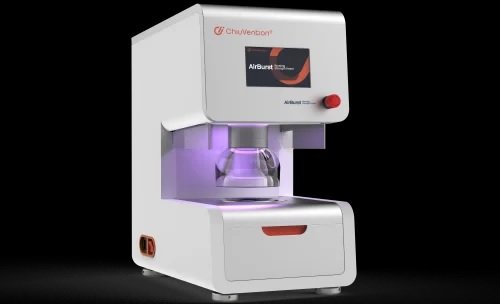
Universal Tensile Tester: The Ultimate Solution for Material Strength Analysis
In the world of material science and quality control, precision and reliability are paramount. Whether in manufacturing, construction, or research, understanding the tensile strength of materials is crucial. A Universal Tensile Tester serves as an indispensable tool for evaluating the mechanical properties of metals, plastics, textiles, and composites. This article explores the significance of tensile testing, the advantages of modern Digital Tensile Testers, and how Metal Tensile Testers contribute to industrial and scientific advancements.
What is a Universal Tensile Tester?
A Universal Tensile Tester is a versatile machine designed to measure the tensile strength, elongation, compression, bending, and shear properties of various materials. It applies controlled tension to a specimen until failure, recording critical data such as maximum load, deformation, and stress-strain relationships.
These testers are widely used in industries such as.
Automotive – Testing the durability of metals and polymers.
Aerospace – Ensuring materials meet stringent safety standards.
Construction – Evaluating the strength of steel, concrete, and composites.
Textiles – Measuring fabric elasticity and tear resistance.
Medical Devices – Verifying the integrity of implants and surgical materials.
Types of Tensile Testing Machines
1. Metal Tensile Tester
A Metal Tensile Tester is specifically engineered to assess the mechanical properties of metallic materials, including:
Yield Strength – The point at which a metal begins to deform permanently.
Ultimate Tensile Strength (UTS) – The maximum stress a metal can withstand before breaking.
Elongation at Break – The extent to which a metal stretches before fracture.
These testers are essential in metallurgy, automotive manufacturing, and structural engineering, where metal integrity is critical.
2. Digital Tensile Tester
Modern Digital Tensile Testers have revolutionized material testing with advanced features such as:
High-precision load cells for accurate force measurement.
Touchscreen interfaces for user-friendly operation.
Real-time data logging and graphical stress-strain analysis.
Automated reporting for compliance with industry standards (ASTM, ISO, DIN).
Digital testers enhance efficiency, reduce human error, and provide repeatable results, making them ideal for laboratories and production facilities.
Key Features of a Universal Tensile Tester
1. High Load Capacity
Depending on the application, tensile testers can handle loads ranging from a few newtons (for delicate materials) to several meganewtons (for heavy-duty metals).
2. Multi-Functional Testing
Beyond tensile tests, universal testers can perform:
Compression tests (e.g., concrete blocks).
Flexural tests (e.g., plastic beams).
Peel tests (e.g., adhesives and packaging materials).
3. Advanced Software Integration
Modern testers come with software that enables:
Automated test sequences
Customizable test protocols.
Statistical analysis and trend monitoring.
4. Compliance with International Standards
A high-quality Universal Tensile Tester adheres to global standards such as:
ASTM E8/E8M – Standard test methods for metallic materials.
ISO 6892-1 – Tensile testing of metals at room temperature.
ASTM D638 – Tensile properties of plastics.
Applications of Tensile Testing in Different Industries
1. Automotive Industry
Automakers rely on Metal Tensile Testers to ensure that engine components, chassis parts, and safety systems meet durability requirements.
2. Aerospace and Defense
Aircraft materials undergo rigorous tensile testing to withstand extreme forces, ensuring passenger and crew safety.
3. Medical Device Manufacturing
Implants, surgical tools, and biodegradable materials must pass tensile tests to guarantee performance under stress.
4. Construction and Civil Engineering
Steel rebars, cables, and concrete reinforcements are tested to prevent structural failures in bridges and buildings.
5. Consumer Goods and Packaging
From plastic bottles to cardboard boxes, manufacturers use Digital Tensile Testers to assess product reliability.
Choosing the Right Tensile Tester
When selecting a Universal Tensile Tester, consider:
Material Type – Metals, polymers, or composites?
Load Range – Small-scale lab tests or industrial heavy-duty applications?
Accuracy Requirements – Does the tester meet calibration standards?
Automation Needs – Should it integrate with existing quality control systems?
Conclusion
A Universal Tensile Tester is a cornerstone of material testing, offering unmatched precision and versatility. Whether you need a Metal Tensile Tester for industrial applications or a Digital Tensile Tester for high-tech laboratories, investing in the right equipment ensures product reliability, regulatory compliance, and innovation in material science.
By leveraging advanced tensile testing technology, industries can enhance product quality, optimize manufacturing processes, and push the boundaries of material performance.
For more information on textile testing methods/standards
or textile testing machines, contact us:
What’s App: +86 180 2511 4082
Tel: +86 769 2329 4842
Fax: +86 769 2329 4860
Email: sales@tes.hk